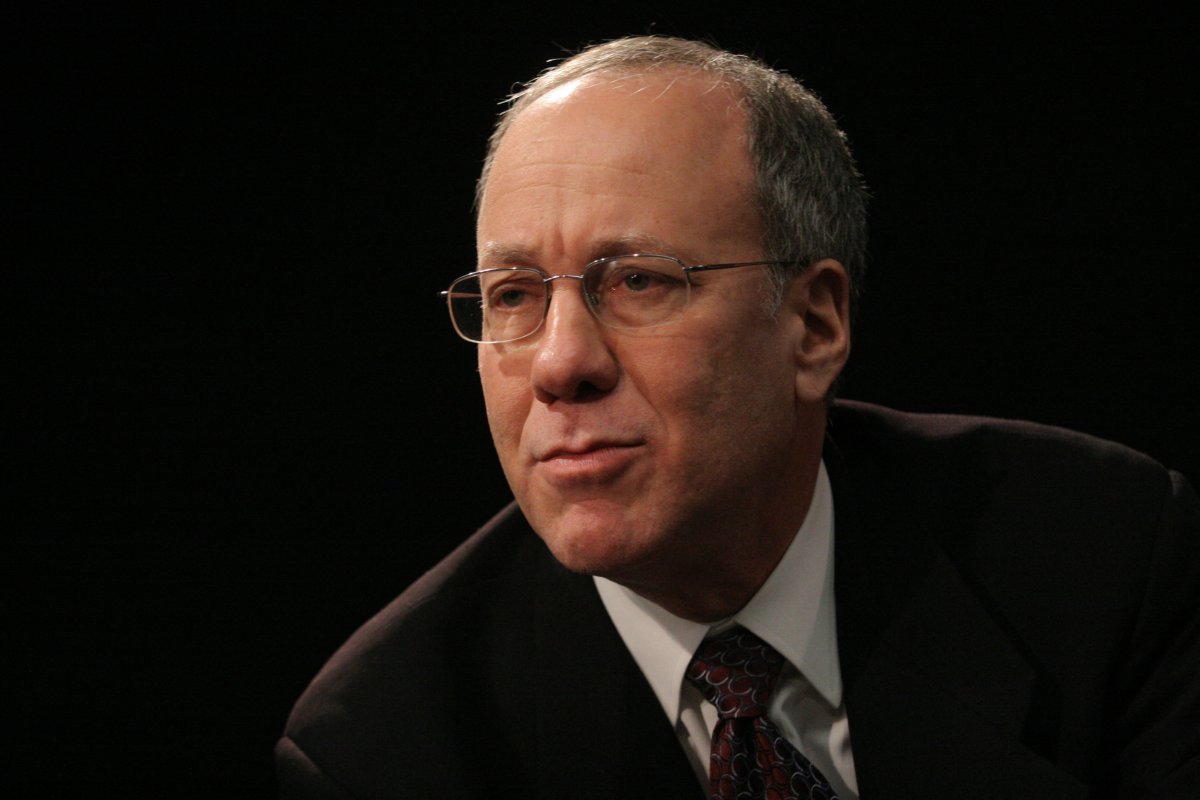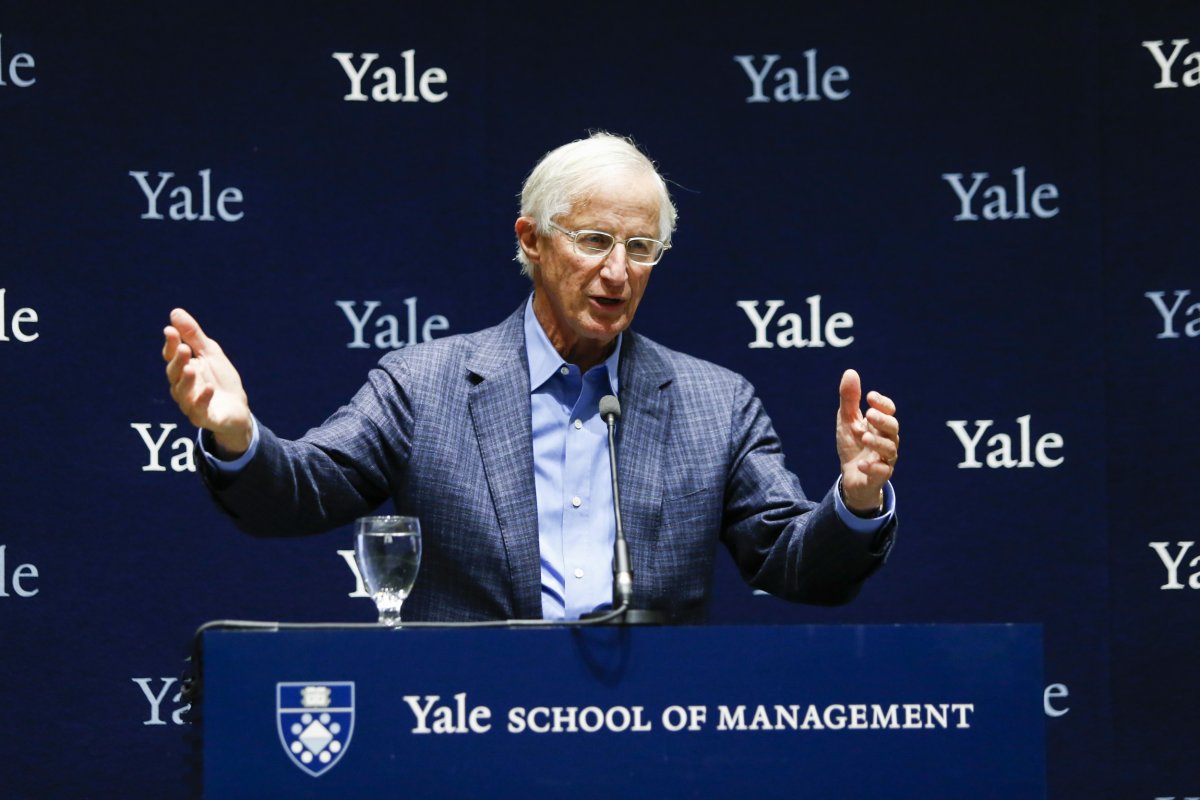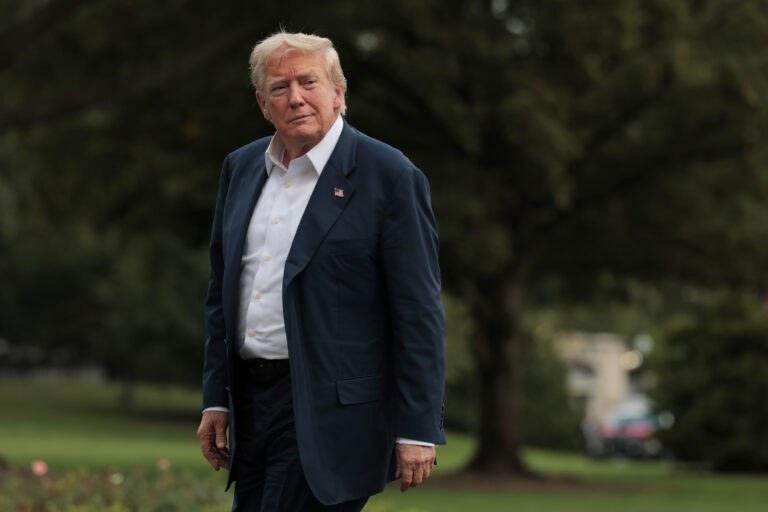Past winners of the Nobel Prize in economics have reacted to the suggestion that President Donald Trump’s trade agenda has earned him a nomination for the prestigious award.
During a Thursday appearance on Fox Business, Peter Navarro, White House trade adviser, said described the effects of the president’s sweeping tariff policies as “a fundamental restructuring of the international trade environment.”
“A lot of people talk about Donald Trump for the Nobel Peace Prize,” Navarro added. “I’m thinking that, since he’s basically taught the world trade economics, he might be up for the Nobel in economics.”

Anna Moneymaker/Getty Images
What Do Past Winners Make of the Idea?
Newsweek spoke with winners of the prize—officially the Sveriges Riksbank Prize in Economic Sciences in Memory of Alfred Nobel—about the prospect of Trump receiving a nomination or winning the award.
Newsweek has contacted the White House for a response to the opinions expressed by Nobel laureates in this article.
Eric Maskin (2007)
“I think it is unlikely that Donald Trump will be awarded a Nobel for economics,” said Maskin, who was jointly awarded the prize in 2007 for contributions to mechanism design theory.
“The prize is given for discoveries in economics, not for economic policies,” he told Newsweek. “And even if it were awarded for a policy, it is far too early to know for sure what the impact of President Trump’s tariffs will be.”
Maskin added that there exists “good reason” to assume that, should the high rates of tariffs imposed by Trump remain in effect, “the long-run effects on the U.S. and the world will be negative—but we will see.”
Roger Myerson (2007)
“The Nobel Memorial Prize in Economic Sciences is a science prize, and so it has been awarded for advances to general understanding in economics,” said Roger Myerson, co-recipient of 2007 award alongside Maskin and Polish-American economist Leonid Hurwicz.
He noted that the award is not given out for economic policy, noting that former Federal Reserve Chairman and 2022 winner Ben Bernanke was recognized for his scholarly work on the Great Depression, and not his actions during the 2008 financial crisis.

Nicholas Kamm/AFP via Getty Images
“As president of the United States, Donald Trump has made decisions that will also have great economic impact on millions of people’s, for better or for worse,” Myerson told Newsweek. “But if Peter Navarro wants to make the case for him as a candidate for a Nobel Memorial Prize in Economic Sciences, it should be based on Donald Trump’s contribution to our understanding of what is a good economic policy.”
Myerson said that many of Trump’s recent policies had challenged conventional economic wisdom, but that to make a strong case for the award the president would need to “publish papers that engage with the economics literature and identify the different assumptions that have led him to choose his policies.”
“If President Trump truly has important insights to offer about economic policy-making, his publishing a thoughtful rigorous development of his ideas could be an important contribution to economic sciences,” he added. “I should warn him, however, that the number of important contributions to economic sciences is greater than the number of prizes that the Nobel Committee is able to recognize.”
James Heckman (2000)
“Let me put it this way: He is more deserving than Barack Obama,” said Heckman, referring to the 2009 Peace Prize given to the former president only nine months into his first term. He said that a peace prize for Trump could be justified, “if he succeeds in bringing peace to the Middle East.”
However, Heckman, who was awarded the economics prize in 2000 for his work on econometrics, said he was “sure” Trump could never win this award “because of his abrasive commentary.”
“The bias against his politics is immense everywhere and he is not as polished as most laureates are,” he told Newsweek.
Heckman agreed with Navarro that Trump had attempted to restructure global trade, but said the “jury is out” on the impacts of this.
“But who knows. The times they are a-changing and [Bob] Dylan won for literature.”
William Nordhaus (2018)
Responding to Navarro, whom he called “an unreliable source of theory and commentary,” Nordhaus told Newsweek he was skeptical that Trump’s trade policies had achieved anything besides undermining America’s global leverage.
“The way I understand Trump’s ‘successes’ is this: The United States has over the decades built up an enormous reservoir of soft and hard power as well as good will around most of the world—a vast amount of social capital,” said Nordhaus, who won the award in 2018 “for integrating climate change into long-run macroeconomic analysis.”

Eduardo Munoz/Getty Images
“Trump has drawn upon that social capital and is using it like a spendthrift teenager to achieve virtually nothing of value and to destroy many critical parts of the global institutional infrastructure,” Nordhaus said.
He added that Trump could be a “leading contender” for the Ig Nobel Prize. Past winners of this satirical prize, awarded annually since 1991, include Russian President Vladimir Putin and Edward Teller, the Hungarian-American physicist known as the “the father of the hydrogen bomb,” as well as Donald Trump himself, a co-winner of the 2020 award for Medical Education due to his perceived mishandling of the COVID-19 pandemic.
What Others Are Saying
White House trade adviser Peter Navarro told Fox Business on Thursday: “This is a fundamental restructuring of the international trade environment in a way where the biggest market in the world has said you’re not going to cheat us anymore. We’re going to have fair deals.”
“Everything he’s doing has defied the critics,” Navarro added. “The tariffs have been tax cuts rather than inflation, and it’s working beautifully.”
White House press secretary Karoline Leavitt, during a recent press briefing, said: “President Trump has brokered, on average, about one peace or ceasefire per month during his six months in office. It’s well past time that President Trump was awarded the Nobel Peace Prize.”
Jeffrey Frankel, economist and professor at the Harvard Kennedy School, told Newsweek that the prospect of Trump receiving the economics prize is “beyond absurd” and that there is “no chance whatever that he would be seriously considered.”
“Regarding policies enacted, Trump’s tariffs may go down in history because the effects will be so bad and, much as the Smoot-Hawley tariff of 1930 did, may teach a generation or two about the harms of tariffs and the value of listening to warnings from professional economists, when they are virtually unanimous,” he said.
“I must say, I put the probability of Trump winning the Nobel Prize as well below the probability of the U.S. invading Sweden,” he added.
What Happens Next?
As well as the White House press secretary, Trump has been tapped to receive nominations for the Nobel Peace Prize by Pakistan, Israeli Prime Minister Benjamin Netanyahu and, most recently, Cambodia.
Prize announcements for all Nobel prizes typically occur in October, followed by award ceremonies held in December.


